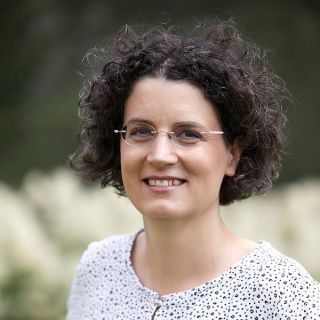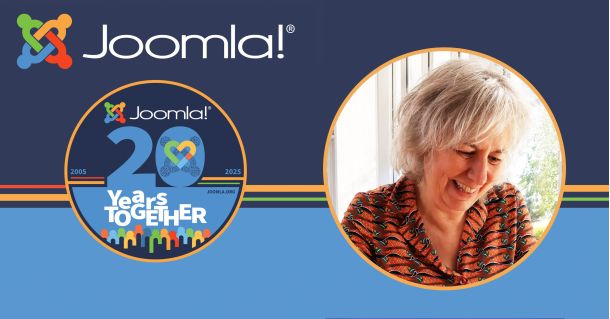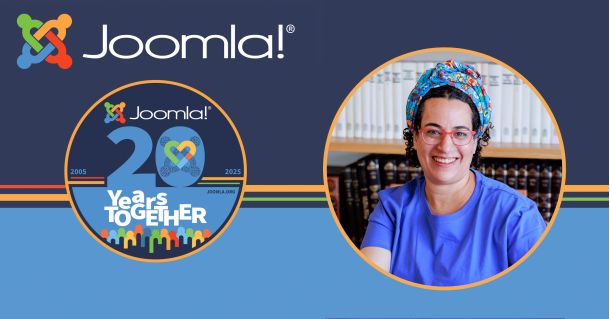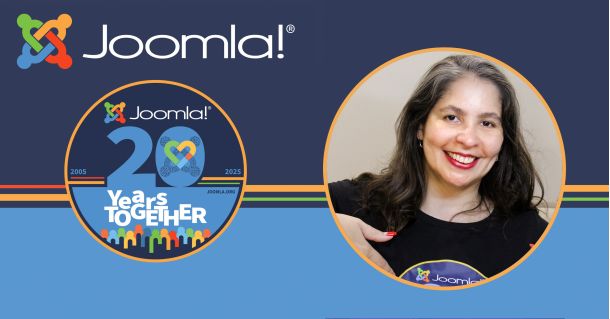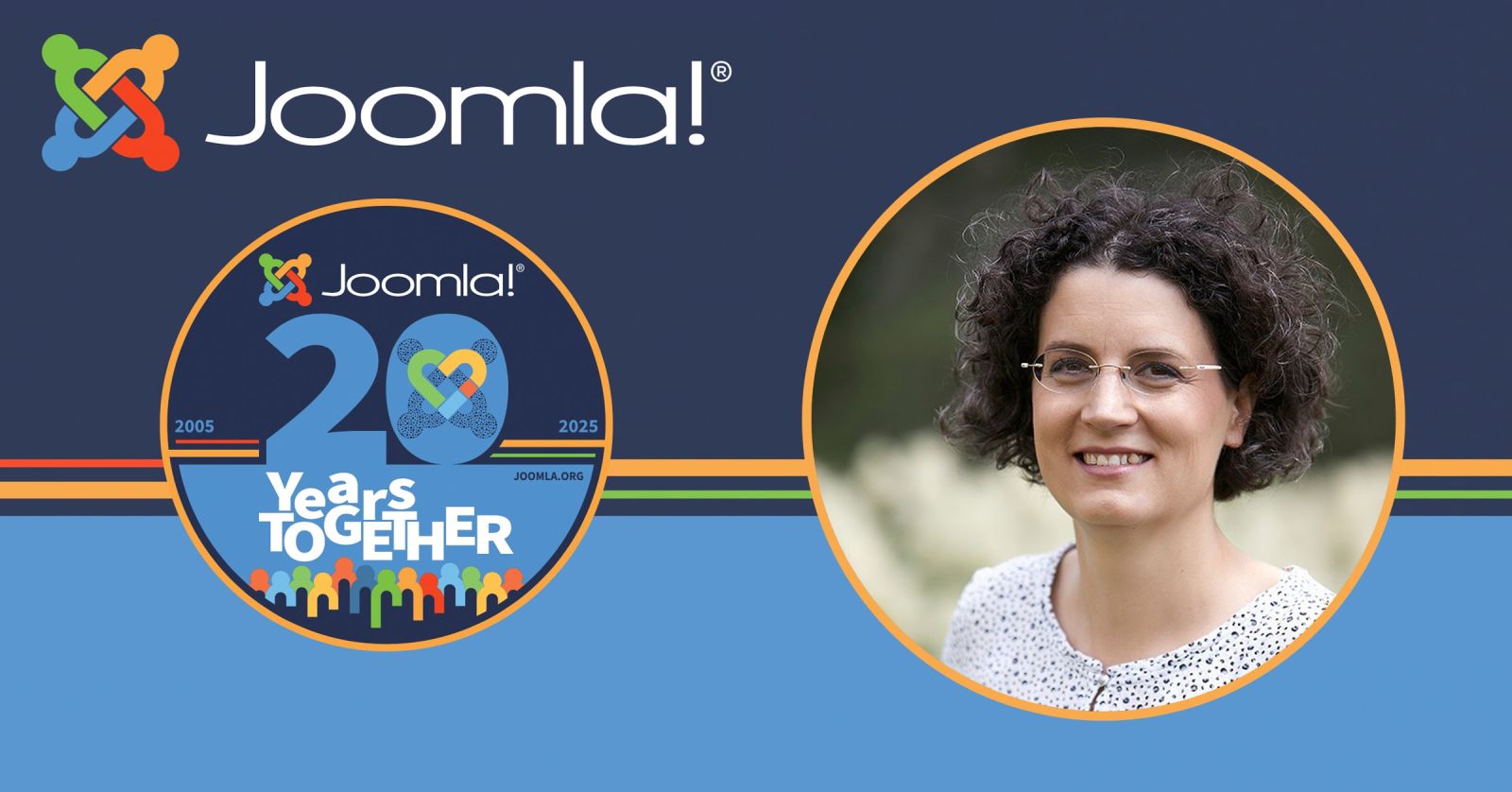
Joomla in Faces. Sigrid Gramlinger-Moser (GDPR expert, JoomlaDay co-organiser)
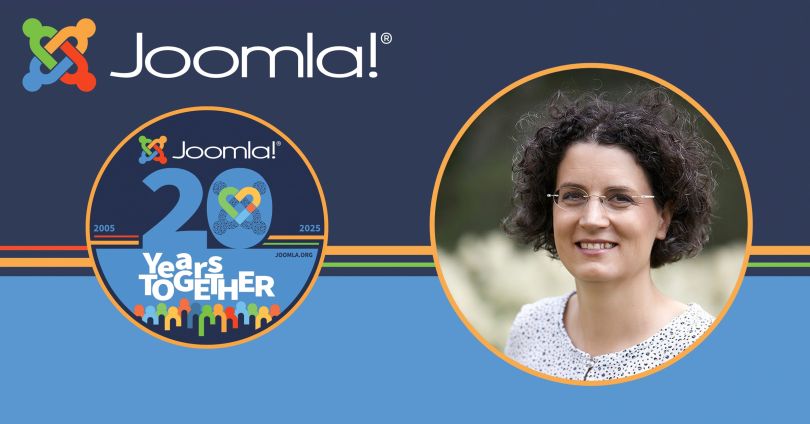
- Published: 05 October 2025
- Last modified: 07 January 2026


Imagine a website that is not only easy to find but also easy for everyone to use, efficiently managed behind the scenes, and fully compliant with privacy laws. Turning this vision into reality is Sigrid Gramlinger-Moser's specialty. As a dedicated Website and Digitalization Expert, she focuses on the crucial elements that often fall through the cracks: making sites WCAG compliant, ensuring GDPR adherence, and optimizing internal workflows. An active organiser and speaker at JoomlaDays, Sigrid is at the forefront of the open-source world. In this interview, she shares her blueprint for creating digital experiences that are successful on every level.
1. Tell us a few words about yourself
2. Your first encounter with Joomla: how did it happen?
My first encounter with Joomla was back in 2005–2006, when I was looking for a flexible CMS to build client websites. At that time, I wasn’t completely convinced yet, but the more I explored it, the more I appreciated the balance between structure and creative freedom. My first big Joomla project was the Upper Austrian State Garden Show website in 2007, which made me realize how powerful and scalable Joomla could be. Over the years, I’ve built countless sites with it—from small business pages to complex portals—and I’ve never looked back. Joomla has truly shaped my professional journey.
3. Have you worked with other Content Management Systems besides Joomla?
4. How do you contribute to the Joomla community?

"My involvement in the Joomla community has grown from being a participant to taking on leadership roles"
Sigrid
Over the years, my involvement in the Joomla community has grown from being a participant to taking on leadership roles. The first event I attended was JoomlaDay Germany in 2012, when I was searching for others who were working with Joomla. I was deeply impressed by the lively discussions, the high level of expertise, and the openness of the people there. Back in Austria, I missed having a similar community, so I co-founded the Joomla User Group Vienna and organized the first JoomlaDay Austria in 2015. Later,I participated in J and Beyond conferences and the Joomla World Conference 2017 in Rome. In 2019, I joined the CMS Release Team when they were looking for testers—and I never left. When the team lead position became vacant in 2020, I took it on, and today I serve as the Production Department Coordinator, supporting our teams, release managers, and volunteers to ensure Joomla releases happen regularly and smoothly. I also speak at conferences, mentor newcomers, and advocate for accessibility and diversity within our open-source ecosystem. And I am still co-organiser for the JoomlaDays D-A-CH (Germany, Austria and Switzerland): https://dach.joomladay.org/en/
For me, contributing is both a professional responsibility and a source of joy—it connects me with inspiring people around the world.
5. What motivates you to contribute, and what do you get out of it?
6. The Joomla community in the DACH region is very strong. As a co-organizer of many events and a speaker, what advice would you give to people who are just starting to organize Joomla events and User Groups (JUGs)?
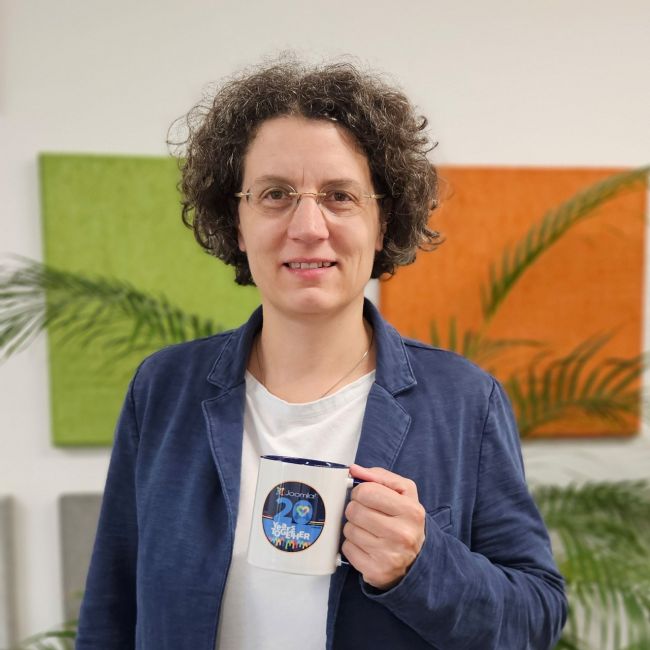
7. You and Peter Martin started the data2.eu project to help webmasters make their sites GDPR-compliant. How successful has this project been, and do you receive feedback from users?
Yes, Peter Martin and I launched the SaaS data2.eu shortly after the GDPR came into effect in 2018. Our goal was to make it easier for webmasters and small businesses to create their records of processing activities—something that was often confusing and time-consuming. Although the tool was appreciated, it was used by only a small number of people, so we decided to sunset the project in September 2023.
After that, we started a new Joomla extension called d2 Profiles, a Joomla backend component that helps users manage and edit Joomla articles more easily through customized editing profiles. Because this functionality works very close to the Joomla core system, we often had to build complex workarounds to make it compatible with 3rd party plugins.
Therefore, Peter and I thought for this feature to be added directly to the Joomla core. We are happy to see that the future Joomla roadmap includes plans for improved authoring forms and a better user experience - as seen in the result of the “Joomla 8 Sprint” in September 2025.
8. You pay close attention to accessibility and WCAG compliance when creating websites. How difficult is it to make an average Joomla website accessible?
With Joomla, it’s not as difficult as many people think—it’s mostly about awareness and consistency. The Joomla core already provides a solid foundation for accessible websites, especially since Joomla 4 introduced many accessibility improvements. The real challenge lies in design decisions, third-party extensions, and proper content structure. As a Certified Web Accessibility Expert, I often explain to clients that accessibility isn’t a one-time task but an ongoing mindset. Once you integrate it into your workflow from the beginning, it becomes second nature—and it makes every website better for all users.
9. Running your own agency is a significant responsibility. What have been the most impactful moments in your life (positive or negative) associated with running your agency?
Running my agency webgras for 20 years has been an incredible journey. One of the most rewarding moments was when I hired my first employees—it transformed my one-woman business into a real team and opened up new possibilities. There were, of course, challenging times, especially during the early years of balancing family and business or when facing technical crises late at night before a deadline. But those moments taught me resilience and adaptability. Looking back, I’m proud that webgras has grown sustainably, with long-term client relationships and a clear focus on Joomla.
10. What key advantages of Joomla would you highlight?

"Joomla’s biggest strength is its balance between flexibility and structure."
Sigrid
Joomla’s biggest strength is its balance between flexibility and structure. It gives administrators, developers and site builders complete control without locking them into rigid frameworks. The built-in user management, multilingual system and custom fields make it incredibly versatile right out of the box. I also value its strong focus on privacy, accessibility, and open-source ethics—values that align perfectly with my own. And beyond the technical side, the Joomla community itself is a true advantage—knowledgeable, welcoming, and always ready to help.
11. What would you like to see improved in the Joomla ecosystem?
I’d love to see more visibility and outreach—especially towards agencies, universities, and young developers. Joomla has so many strengths that sometimes remain hidden because we’re too modest as a community.
I’m also a strong advocate for recognizing volunteer contributions more visibly, for example through initiatives like Holopin badges or a partner program similar to other CMS ecosystems. These efforts help make engagement sustainable and rewarding in the long run.
12. Joomla is turning 20. What are your thoughts on this milestone?
It’s a truly special moment. For me, Joomla isn’t just software—it’s a community that has grown, evolved, and supported thousands of people like me in building their careers and connections. I’m proud to have been part of this journey for so many years and to see how the project has matured while staying true to its open-source values. The 20th anniversary reminds us how far we’ve come—and that the next chapter is ours to write together. Let’s go for another 20 years!

